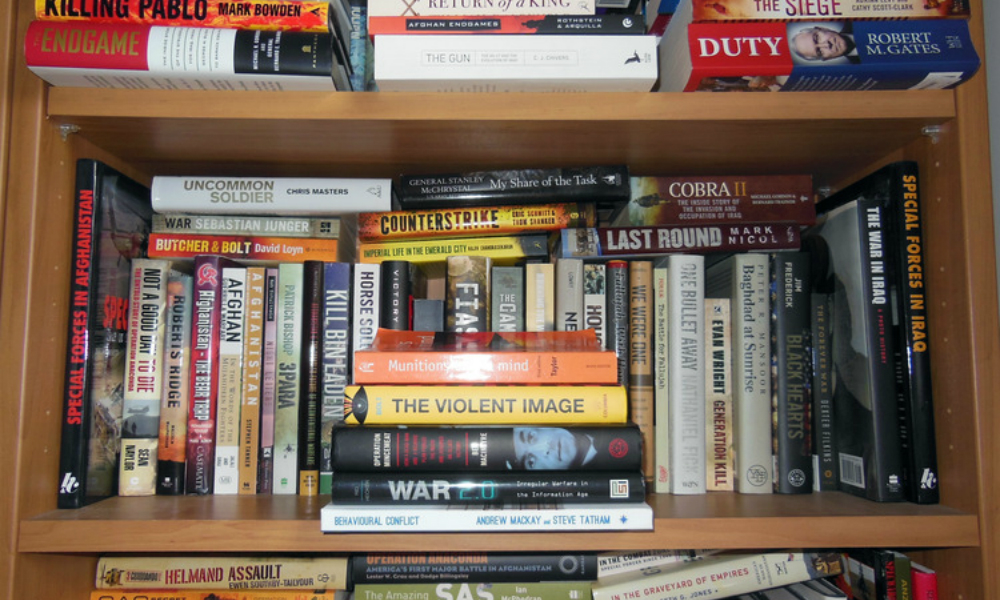Top Five Books
Thomas Rid and Marc Hecker, War 2.0: Irregular Warfare in the Information Age
A comprehensive study into the changes in the information environment brought about by widespread access to the Internet and what it means to military planners.
Neville Bolt, The Violent Image: Insurgent Propaganda and the New Revolutionaries
Places insurgent/terrorist propaganda in context as a “weapon” in the modern environment with brutal acts conducted for their strategic information effect despite their limited tactical or operational value.
Philip M. Taylor, Munitions of the Mind: A History of Propaganda from the Ancient World to the Present Day
Professor Taylor’s academic approach allows the study of propaganda through an objective lens that is devoid of the modern biases we associate with the term. It highlights that the area always has been, and is always likely to be, a traditional military activity.
Andrew MacKay and Steve Tatham, Behavioural Conflict: Why Understanding People and Their Motivations Will Prove Decisive in Future Conflict
Hard-won experience gained in recent conflicts, particularly the requirement for influence planning to center on behavioral change in select target audiences rather than hoping to persuade the deeply held beliefs of wider populations.
Chris Masters, Uncommon Soldier
Focuses on what makes the modern, professional, Australian soldier distinct among his or her coalition partners. It offers great insight into what motivates and annoys my peers.
The One That Shaped Me The Most
Ben MacIntyre, Operation Mincemeat
One of the great stories of World War II, immortalized in the movie The Man Who Never Was, this book prompts a range of questions about how we conduct joint, interagency operations today. It highlights the importance of finding creative thinkers, often outside the traditional military mold of a staff officer, and channeling their passion and enterprise towards less conventional outcomes. It also highlights the importance of dissecting a seemingly insurmountable problem into smaller elements to achieve the ultimate goal. Finally, this book teaches the importance of integration, coordination, and synchronization during the planning and execution phases of operations. Whether we could ever do something similar in the modern hyper-connected world, and particularly whether we would have the patience, is a question I continually ask myself.


